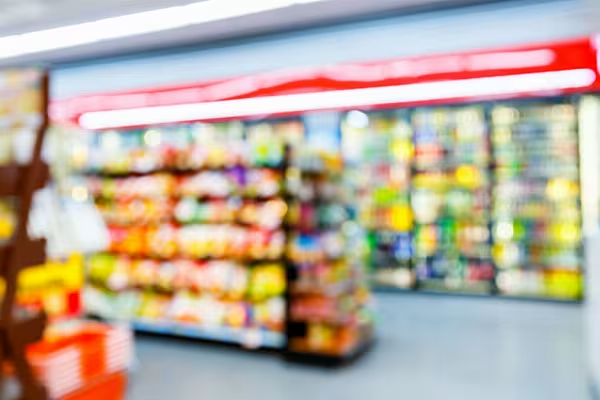Stock prices for food and beverage companies are about to get frothier -- and that's not necessarily a good thing.
French yogurt maker Danone's $10 billion deal to buy WhiteWave -- a 19 percent premium to the U.S. organic food company's pre-announcement price -- feeds the market's growing belief that big food companies will pay up to buy growth that comes from organic and natural foods, as sales dry up in their legacy snack and soda businesses.
WhiteWave's stock opened trading Thursday higher than Danone's original offer price -- and that's after a rise of nearly 50 percent over the past two years. Danone's stock also rose by as much as 7 percent Thursday, before falling on speculation that other WhiteWave bidders could emerge.
The pair is not alone: Shares in the S&P 500 packaged-food industry index are up 20 percent in the past year, compared to a 1 percent rise in the full S&P 500. And the gains aren't just coming from would-be takeover targets; shares of food giants such as General Mills and Kraft Heinz are up roughly 20 percent in the past year, while Pepsi and Coca-Cola are up about 12 percent.
But the stock run-up is a worrisome sign for an industry in which rising share prices long ago stopped reflecting underlying business fundamentals.
In the quarter ended June 30, sales at consumer-staples companies in the S&P 500 fell 0.23 percent from the year before, according to Bloomberg data. Earnings for this group fell 6.92 percent from the year before. And, despite promises by many companies to launch new, innovative products, spending on research and development fell by 7.73 percent from the year before, Bloomberg data show.
Instead of falling on this dismal performance, shares in these companies have surged, partly because investors were pricing in the likelihood of growth-boosting deals. The S&P 500 Packaged Foods Index traded at a 42 percent premium to the S&P 500 as of June 30, based on enterprise value to forward Ebitda, according to Bloomberg Intelligence analyst Ken Shea.
Many of these consumer-staples stocks are also in demand as safe havens in choppy financial markets. And amid record-low bond yields, many investors have piled into companies like Pepsi for the added benefit of their generous dividend yields.
As a result, packaged-food companies now look pretty pricey. Global packaged-food companies followed by Bloomberg Intelligence trade at 18 times forward earnings, 14 percent higher than the multiples for companies in the MSCI World Index, according to BI's Shea.
In North America, packaged food companies in the S&P 500 trade at 23 times forward earnings, up from a multiple of 14 in 2009. That compares to a forward multiple of 17.8 for the S&P 500 index.
Priced into these rich valuations is the hope of more M&A to come, and at loftier prices. The Danone-WhiteWave deal will certainly add more fuel to that fire. So will Hershey's spurned offer from Mondelez: Although the bar was already high for the controlling Hershey Trust to approve any kind of sale, it's likely the trust would have given more consideration to the deal had the price tag been increased. And while companies such as Clorox and Hain Celestial have said they've found valuations too pricey to justify certain deals, recently proposed deals suggest the pressure to pay up is growing.
For now, the stock performance of packaged-food companies seems to be keeping at least some activist investors at bay. And it's keeping paychecks plump for executives with pay tied to rising stock prices.
But it's masking paltry sales for many of these companies. North American packaged food sales have barely budged over the past five years, according to analytics firm Euromonitor.
If the lofty stock prices at these big food-and-beverage companies relieves pressure on executives to fix their businesses and actually figure out how to create products consumers want to eat, rather than just relying on M&A for growth, it could come back to bite them when the deal spell fizzles out.
This column does not necessarily reflect the opinion of Bloomberg LP and its owners.
News by Bloomberg, edited by ESM. To subscribe to ESM: The European Supermarket Magazine, click here.














